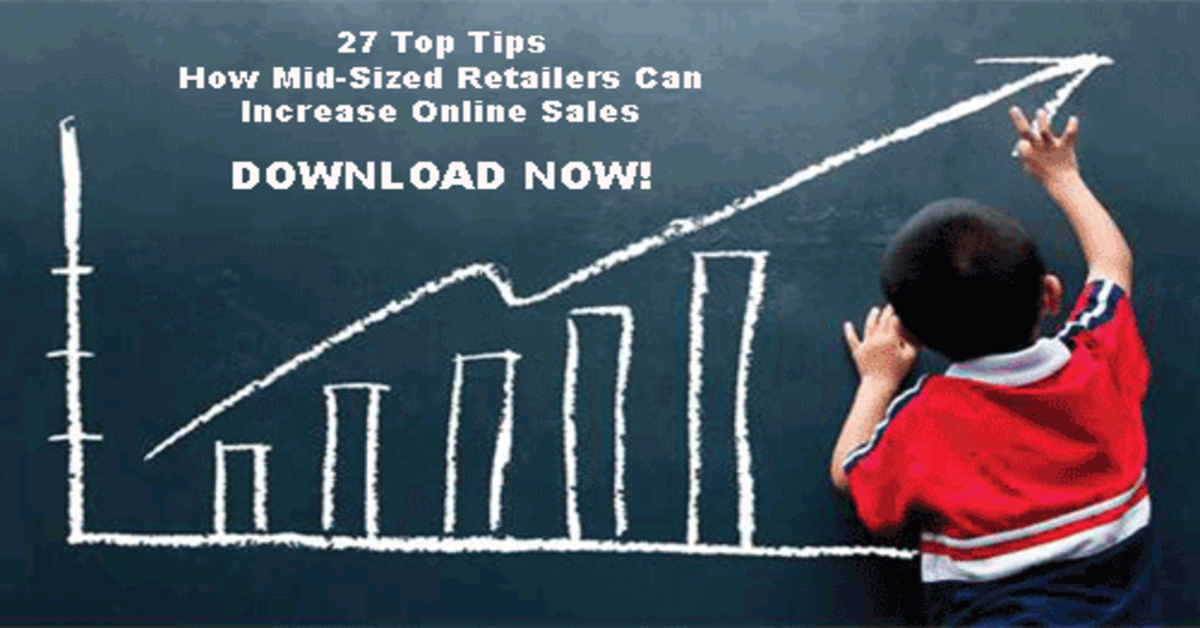
There is no “perfect” digital commerce platform solution. There are different options for different operations and the right fit for every model. Having one that optimizes your needs and requirements is what will drive sales, support your volume of transactions, increase conversions, and handle your different points of traffic.
For a business owner who is just starting out with their first online store, and is not generating traffic yet, going with a smaller scale operation is ideal because you want to be able to maintain costs reasonably. The same goes for an existing store that has to handle continuous daily sales, along with spikes in traffic that come during peak times through the year, particularly during Black Friday.
So in an effort to provide you with as much information as possible on smart, successful, digital retailing, here are 10 Key Points for choosing a digital commerce platform that will unify commerce, drive sales most effectively, with respect to the size, growth, and the level of action your site sees.
Mobile-First:
You’ve launched your store; congrats! The first hurdle is overcome. Now it’s time to get to work making all points of contact available to your customer. Mobile should be the first avenue you fortify; some VTEX clients have seen over 50% of their sales coming from mobile. So, prepare your online store to work with mobile devices.
Intuitive Checkout:
75% of shopping carts are abandoned and most successful online retailers know that the better your checkout procedure is, the better the sales. Because of this fact, many virtual stores have upped their offerings of providing a more intuitive checkout process that allows customers to checkout quickly and easily. The exclusive password-free VTEX Smartcheckout™ technology increases conversions by as much as 54%.
Stability with Scalability:
A site should be able to scale as needed. If your site handles general everyday traffic easily but crashes from the 15X increase that comes during Black Friday, it’s a problem, isn’t it? Stability with scalability is a major factor to consider, and growth during peak times is very important to have supported in the long-term goals of your operation. Real on-demand cloud infrastructure should be able to auto-scale keeping performance with no pre-provisioning and no traffic defenders.
Layout Flexibility:
Though it seems like the best course of action when starting up a virtual store to have the lowest cost platform and using existing templates, the customizations and ability to extend your reach with your site’s marketing availability will be limited. Platforms with an advanced CMS module, along with native and integrated page managers will enable you to customize more effectively without needing to rely on vendors for support.
Advanced Features:
While they may not be a necessity for a very new business, for existing businesses who want to gain as much ground as possible, and for those who have established a certain level of maturity, more features equate to better performance. Lacking functions and features can cause a dramatic loss of sales, so this aspect should never be overlooked by those who want maximum conversions. Being able to seamlessly integrate marketplace features, having a CMS portal for specific, premium omnichannel customizations, and having A/B testing capabilities may not be necessary for smaller stores, but can be highly beneficial to higher-level operations.
Unified Commerce:
Having integration across multiple channels, such as the physical store and the online store are becoming more in demand. Online and offline synergy allows you to optimize your sales and costs, besides being able to offer the best unified experience to your customer.
Multi-Business Models:
There are plenty of online stores that start out utilizing a traditional strategy for online sales, and proceed with expanding beyond that method into B2B, wholesale, etc using a variety of platforms. However, rather than incorporating a variety of platforms into your operation, having a single platform can centralize all aspects of the business to lower operating costs.
Promotion & Segmentation:
Knowing your customer allows you to tailor your selection so that shopping becomes easy. It also allows you to direct your promotions more easily, targeting the right customer for the most effectiveness. For example, coupons can be directed to customers who landed on your site from a price comparison site; or they can be sent via email to long-term customers who have given you business through the years. In any case, the platform should not inhibit a store from generating business as a result of marketing campaigns.
Seamless Integration with Other Systems:
30% of VTEX customers begin their online operations without an integrated ERP system. However, as business grows and they multiply their daily sales the importance of having an integrated ERP becomes a necessity. If the platform is not capable of integration with ERP and other systems, the growth capacity will be limited and your operational tasks will be greater.
Customization Capability:
As time goes on and your site matures, developing new features may be in your best interest such as adding customization features for your customers. Not all platforms can support this, and it becomes important to have a system that enables you to maximize your business opportunities.
These 10 factors are all about increasing sales, and utilizing the most optimal channels available to do so. Failing to recognize them can potentially cause your store to go stagnant. So, what can you do to further increase your site’s performance and conversion rates? First of all, assess your site and determine if it’s the right platform for your business. If things are not as efficient, or converting where you think it should be, it may be time to migrate. If you want to know more about how VTEX can support your business operation and help you sell more, talk to one of our experts today!














